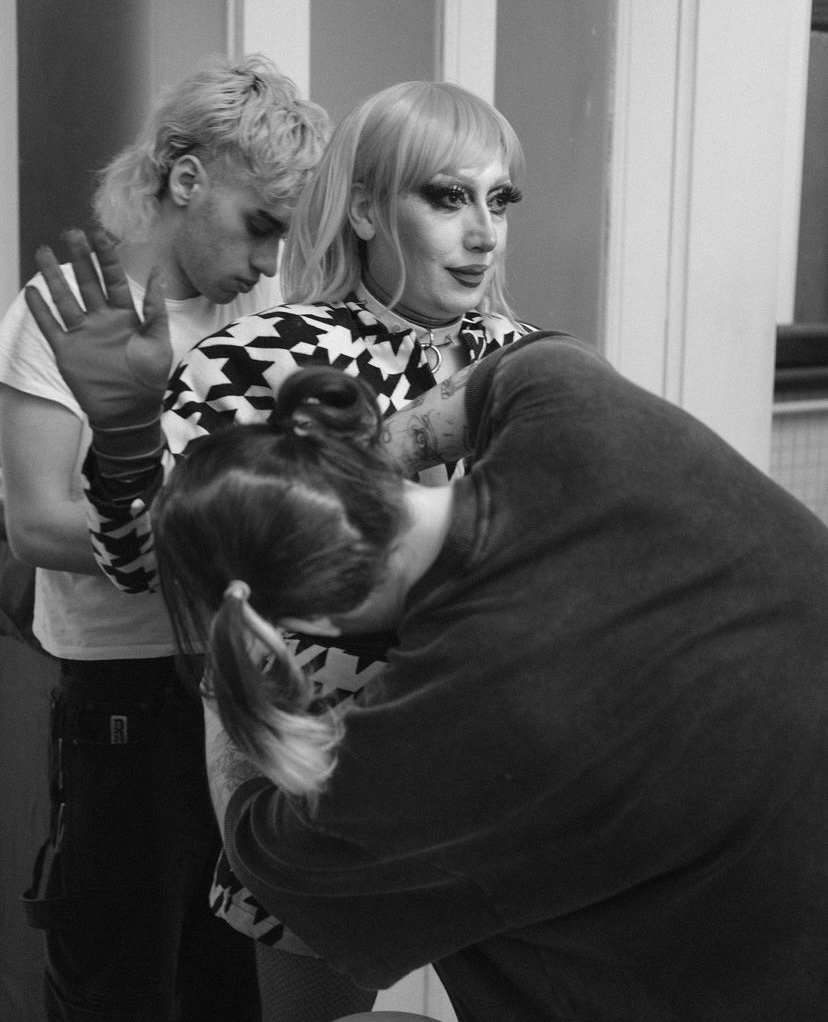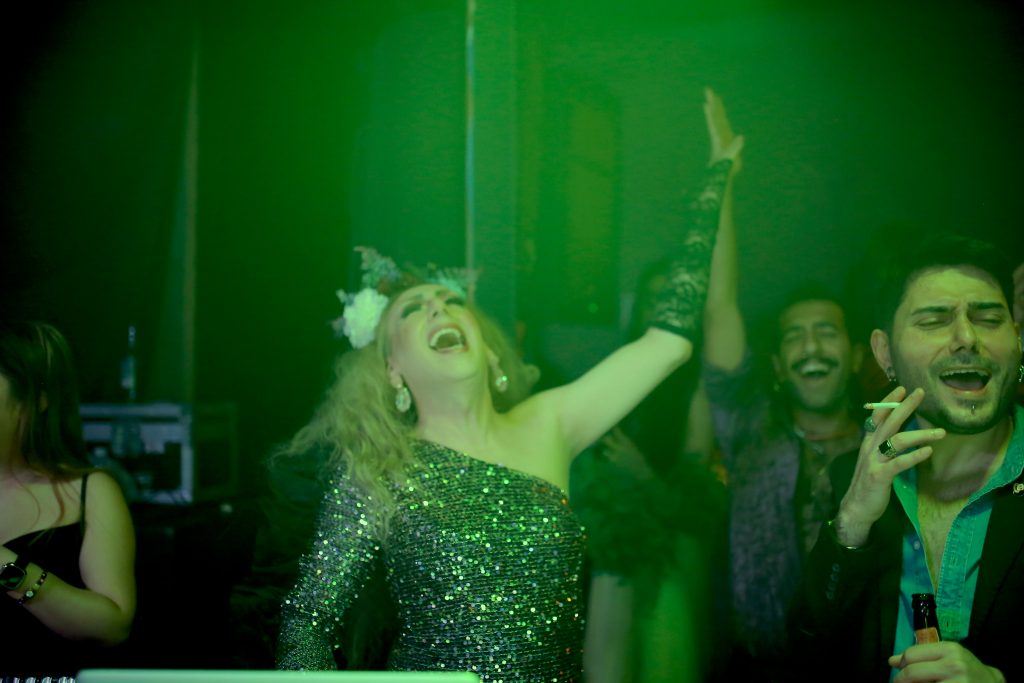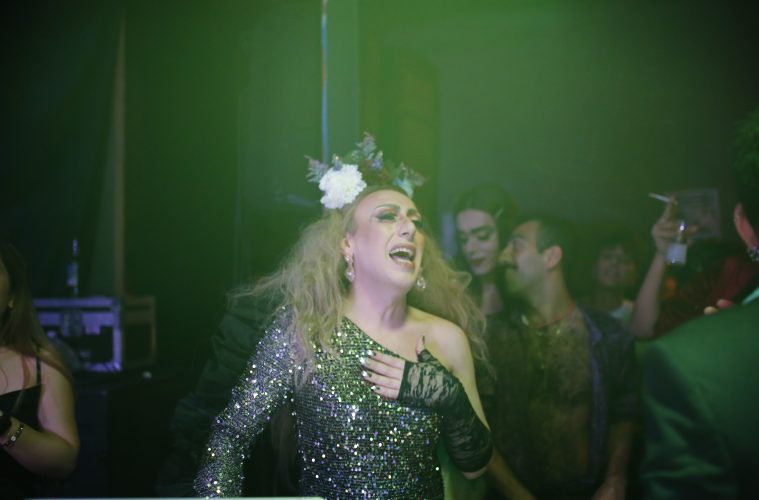Words by Jilet Sebahat
Translations by Erkan Affan
This article is part of the “Ya Leil Ya Eyein” issue
NOTE: This article was written in Turkish and translated into English by Erkan Affan.
There are two movements in Turkey that cannot be contained. One of them is the women’s movement, and the other is the LGBTI+ movement. Despite the oppression, tyranny, and attempts at erasure they have endured, these movements have never once lost their determination to persist and resist.
ON PINK LIFE KUIRFEST
Recent tensions around KuriFest (YEAR) in Ankara and Istanbul demonstrate the persistence of feminist and queer movements in the face of attempts to be silenced. Launched in Ankara in 2011, Pink Life KuriFest was Turkey’s first queer festival. Recently, it fell under fire with the Ankara governor’s ban on LGBT+ events in the city. But we did not accept this; from Denizli to Mersin and Eskişehir, from Berlin to Amsterdam, and now to Istanbul, the festival drew large numbers of participants. It demonstrated our power of coming together in artistic performances and parties despite orders not to.
Organised by the Pink Life Lesbian, Gay, Bisexual, Transvestite and Transgender (LGBTT) Solidarity Association, the festival draws attention to discrimination and violence against LGBTI+ individuals and aims to create an opportunity for the discussion of queer art, cinema, theory, and current events in Turkey. Directors, actors, technical teams, programmers, and film critics are essential to producing the events; activists and artists from diverse fields together around workshops, panels, and conversations. Between cinema and literature, music and video, sound and performance, Kuir Fest has brought queer artists and audiences from Turkey and the world to participate in the event.

ON QUEER RESISTANCE AT UNIVERSITY
Of course, governmental oppression continues as LGBTI+ movements consolidate and organise activities and actions. Resistance against the oppression and police violence that has occurred at Boğaziçi University since the unlawful appointment of Melih Belu, who took office on January 2, 2021, exemplify this. Bulu was appointed as an external name following a military coup of September 12, 2020. Students and academics have protested from the beginning through a variety of actions and activities. Bulu was consequently dismissed on July 15, 2021. Another was appointed in his place, and the repressive regime arrested students and took hundreds into custody. Arrests and detentions continue, as do vigils by academics and students.
This is not the first crackdown to happen on university campuses. In 2019, police intervened in the 9th Pride Parade previously held yearly at the Middle East Technical University (METU) in Ankara (another 2019 event banned this year by the university’s Rector). 22 people were detained and 1 student was injured by a rubber bullet. The Rector announced that the Pride Parade would not be allowed to go ahead in alignment with the Ankara Governor’s controversial ban on LGBTI+ activities; students were notified via email. Claiming that the decision was unlawful, the METU LGBTI+ Solidarity movement rebutted by announcing that the Pride Parade would be held on May 10, as planned. This METU case has been ongoing for 2 years. A disciplinary investigation against students who participated in the METU LGBTI+ Pride Parade is underway, with numerous lawsuits ongoing.
ON FURTHER CONTROVERSIES
These systematic bans on Pride Parades over the past six years have made the struggle stronger. One recalls here the AKP election brochure that was distributed in Beyoğlu leading up to the June 7, 2015 elections, which stated: “Turkey is a country that can hold a Gay Pride on İstiklal Street in the middle of Ramadan. The fact that conservative people are more visible does not mean that they can interfere with anyone’s lifestyle.” However, on June 28, 21 days later, our “lifestyle” was met with water cannons, gas, and the police. What has Turkey become? How did we get here?
Since 2015, the government pressure has only become heavier and heavier. The President invited the people to intervene in the lives of LGBTI+ peoples, and recently said that “there is no such thing as LGBTI”. The government frequently defers to Ali Erbaş, the head of Religious Affairs, to speak on these issues. In 2019, Erbaş took the President’s invitation further by inciting people in a Friday sermon to openly act on their hatred against LGBTI+ people by saying “come, let’s fight together to protect people from such evils.” He has received no legal sanctions, and instead, cases were brought against those who criticized his words. Similarly, on the “Combating Violence Against Women” day in 2019, the Istanbul Police Department responsible for dispersing the protests using violence made a statement after the incidents, saying that the violence is not “against women, but only against the marginals and LGBT people who insist on not dispersing after the protest”, endorsing further hatred. Additionally, following Turkey’s withdrawal from the Istanbul Convention earlier this year, AK Party Deputy Chairman Nurman Kurtulmuş made a statement that “there are two issues [in the convention] that do not match with Turkey, the first of which is the issue of ‘gender’ and the other is ‘preferences of sexual orientation’. It seems that these two issues are areas where marginal elements such as LGBTs hide behind and operate.”.
These are words that will go down in history from the powerful who have tried to erase us.

ON BANNING PRIDE EVENTS
When picnics that were to be held on Istanbul’s surrounding islands were prohibited during Pride Week 2021, the organizing committee moved these events to Maçka Park, a place people went everyday, a place that belongs to the public. Would those who prohibited its occurrence on an island allow it to take place in the city? It seems they would, as the government responded by banning all activities within the borders of Şişli (the borough in which Maçka Park is located) for 30 days without giving a concrete reason. The action was implemented instantly despite contradicting Law No. 2911, which says they must notify the public 24-hours before it goes into effect. Tanks collected around the park and the doors were barricaded shut. Anyone wearing a rainbow mask or colorful clothing was banned from entering, and our friends who had come before the entrances were blocked were subjected to violent attacks by the police. Some were injured, including an individual having their arm broken, and others detained.
The following day, during the Pride Parade, all roads were closed and police barricades were erected on every street corner. And yet people came together and walked despite expecting the detentions, violence, and police interventions that naturally followed. Did we stop? No. All the side streets of Beyoğlu were filled. Did we march? We did. Does it merit a congratulation? It does.
A REMINDER
These provocations, systematic attacks, and acts of oppression are undoubtedly made against our existences, our bodies, our sexualities, the power created by our defences, our unending energy, our uncontrollable fire, and our organisation. They know that they will burn when they touch the fire that has not been extinguished. They are afraid of our history. They are afraid of us. They know that our names will appear in the books taught years later. They know that our movies will be made, our songs will be sung. We are like the church they tried to cover, the tree they cut down, the streets they renamed, the cinemas they demolished. They can’t cut us. They can’t wash us away. They can’t cover us. This movement will not stop, nor will it forget or forgive those who try to stop it. Life is unforgiving and we are this life.

